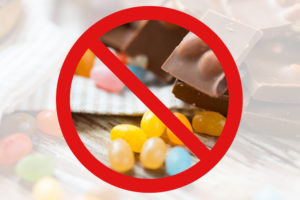
Are our children getting the right kinds of food for maximum brain development and health? Most parents believe their children are getting adequate nutrition, but data shows otherwise. Peeking into a few lunch boxes gives some indications and insights into the issue.
Recent research is showing that a high level of high-fructose sugar contributes to obesity and Type 2 diabetes in children.
High blood sugar levels affect the function of the hippocampus, the part of the brain that helps organize memory.
Children need a diet of complex carbohydrates versus a diet of sugar and foods that have a high glycemic index such as potatoes, white rice, white flour and white sugar. Data shows that 25 percent of children under the age of six eat French fried potatoes every day. One nutritionist recommends avoiding any food that’s white because those foods act like sugar to the brain.
Current research is showing that certain diseases and conditions have their roots in poor childhood nutrition.
For example, the low intake of calcium rich foods–milk, cheese, broccoli, spinach and other green leafy vegetables–during the first 18 years of life may predispose women to osteoporosis.
Fresh fruits and vegetables and whole grains take longer to digest but offer important nutrition that may not be found in the empty calories from the refined carbohydrates in soda and processed foods. For the young child under age six, certain foods should be avoided, and perhaps we all should avoid them.
Two big two no-no’s seem to be sodas and foods that list sugar in the first five ingredients.
For sodas, their sugar content is too high, and the active ingredients in soda work against bone development. Soda drink consumption has risen to over 60 gallons per person annually in the United States. In a study of teenage boys, ages 13 to 18, about 60 percent reported drinking two sodas or more per day, with over 95 percent reporting that they drank soda regularly. In teenagers, over 25 percent of daily calories may be from sodas. The teenage habits begin before the age of six.
Water is the best liquid for our children to drink as effective brain growth and functioning is dependent on the brain being well hydrated, since the brain is over 90 percent water.
The second no-no:
Foods that list sugar as one of the first five ingredients include breakfast cereals, breakfast toaster pastries and more. High sugar consumption is linked to tooth decay, obesity, diabetes, heart disease and other ailments. Serve fresh fruit and vegetables and whole grains to satisfy a sweet tooth.
Make sure that a child’s diet provides adequate protein. Too much protein can be as bad as too little, but inadequate protein affects brain development and overall health. Children from one to three years need about 1,300 calories per day with 16 grams of protein. Four- to six-year-olds need about 1,800 calories per day with 24 grams of protein. Seven- to ten-year-olds require around 2,000 calories with 28 grams of protein.
Common protein-rich foods include milk, soy milk, eggs, cheese, yogurt, peanut butter, lean meats, fish, poultry, beans, tofu, lentils, grains, nuts and seeds.
Another nutritionist recommends only shopping the perimeter of your grocery store, as all the nutritious and fresh food is there, and you won’t be tempted by all the fancy packaged processed food in the center aisles.
As my Granddad used to say, pay the grocer or pay the doctor. Yes, I’d much rather spend my money on blueberries than meeting my medical insurance deductible. It tastes so much better, and my brain loves it.


Thanks for your timely article, Maren. Such an important issue for families and caregivers. For years, our school has suggested parents avoid items where sugar is listed in the top three ingredients – but we will now change that to the top five ingredients. Thanks for the new information! As always your article is spot-on!
Norma,
Glad to help!